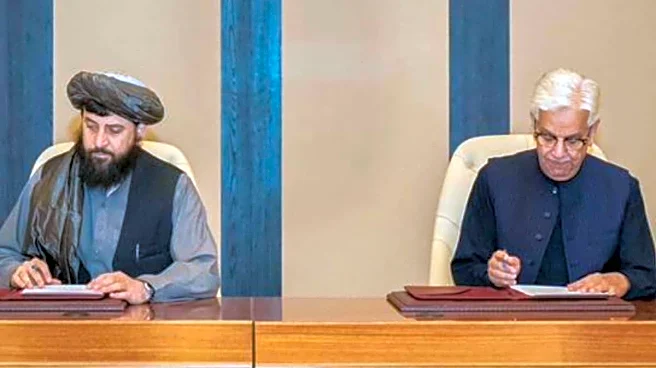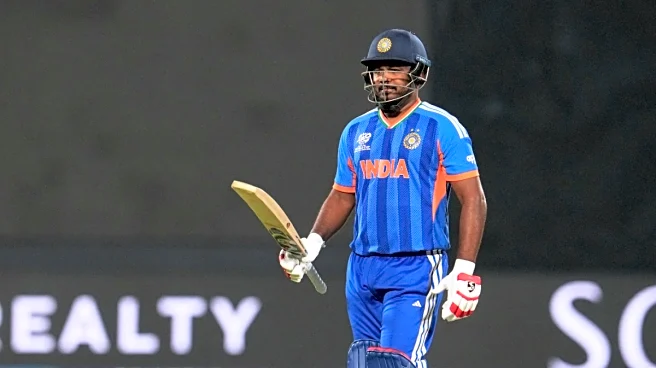Afghanistan and Pakistan have reportedly resumed peace talks in Istanbul, just a day after earlier negotiations for a peaceful resolution were declared to have failed, four sources familiar with the matter
told Reuters on Thursday.
The resumption of the talks also comes a day after Pakistan’s Defence Minister threatened to ‘obliterate’ the ruling Taliban in Kabul.
According to three of the sources, the talks were restarted at the request of mediators Turkey and Qatar, aiming to prevent a repeat of deadly border clashes that have killed dozens this month.
A Pakistani security official said Islamabad would press its central demand: that Afghanistan take action against Islamist militants using its territory as a safe haven to plan attacks on Pakistani soil.
“Most of the issues between Pakistan and Afghanistan have been resolved successfully and peacefully. A few demands from Pakistan need some extra time as they are difficult to be agreed upon,” said a source close to the Afghan Taliban delegation.
Islamabad has long accused the Taliban of harbouring the Pakistani Taliban, a separate militant group hostile to Pakistan, and allowing them to strike Pakistani troops from Afghan territory. Kabul denies these allegations, saying it has no control over the group.
In Kabul, Interior Minister Sirajuddin Haqqani urged Pakistan to focus on its own internal security problems rather than creating tensions in Afghanistan. Speaking in a video posted online, he warned that attempts to provoke conflict “would cost them dearly,” adding that Afghanistan seeks peaceful engagement but would defend itself if attacked.
Pakistan’s Threat
On Wednesday, Pakistan’s Defence Minister Khawaja Asif warned that the country could “obliterate” the Taliban regime, saying Islamabad “does not require even a fraction of its full arsenal” to push the group into hiding. His comments came hours after peace talks collapsed in Istanbul.
Pakistan’s Information Minister Attaullah Tarar had confirmed the breakdown, accusing Kabul of avoiding key issues and engaging in “blame game and deflection.” He said Pakistan remained committed to protecting its people from terrorism.
Talks Aim To Prevent Further Violence
The resumed negotiations follow the deadliest border clashes since the Taliban took power in 2021, which killed more than 70 people and injured hundreds. Violence erupted after Pakistani airstrikes targeted the head of the Pakistani Taliban earlier this month, prompting retaliatory attacks on Pakistani posts along the 2,600-km frontier, which remains closed.
Both sides had agreed to a ceasefire brokered in Doha on October 19 but could not reach common ground in a second round of talks in Istanbul. Despite the ceasefire, clashes between Pakistani forces and the Pakistani Taliban have continued, with multiple deaths reported.
On Thursday, Pakistan said it had killed Qari Amjad, a deputy leader of the Pakistani Taliban and a designated terrorist by the United States, in a cross-border operation—marking a significant victory for Islamabad in its long-running insurgency battle.
(With inputs from Reuters)








